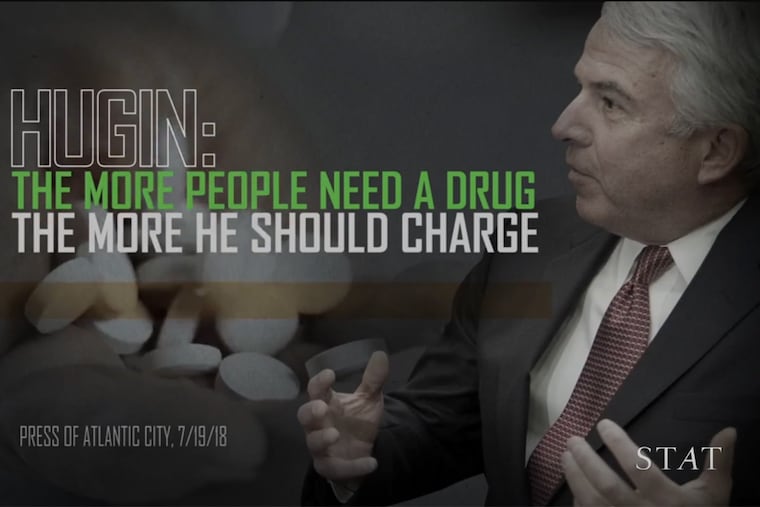Fact-checking Menendez, Hugin pharma ads in NJ Senate race
The cost of prescription medications has become a centerpiece in N.J.'s midterm race between incumbent Sen. Menendez and Republican challenger Hugin, a former pharmaceutical executive.

The cost of prescription medications has become a centerpiece in New Jersey's midterm race between incumbent Democratic Sen. Bob Menendez and Republican challenger Bob Hugin, a former pharmaceutical executive.
Menendez has latched onto Hugin's time as CEO of Celgene, a $13 billion pharmaceutical company based in Union County, N.J., by airing commercials vilifying the company and Hugin for raising prices for cancer medications while taking home a hefty paycheck.
Hugin has fired back, attacking Menendez for accepting campaign contributions from Big Pharma and voting on federal legislation that would raise drug prices for seniors.
STAT, a health care news organization, took a closer look at the claims made in the television ads, which have been airing in New Jersey, Philadelphia, and New York. Reporter Damien Garde concluded that some of the claims are accurate, while others are a stretch.
For example, Menendez claimed in his ad that Hugin raised the price of Revlimid, a cancer medication, three times in a year, and that he earned $48 million over 15 months. Both true, according to STAT.
Menendez also claimed that Hugin nearly halved the price of Revlimid in Russia, which is also true, according to a 2017 report by the Russian Federal Antimonopoly Service that said the government had asked manufacturers to reduce prices.
STAT took issue with the claim, arguing that generic competition in Russia drove down the price. Medications available in the U.S. are commonly sold for lower prices in foreign countries.
>>READ MORE: When medication prices are unaffordable, patients travel abroad for a better deal
Hugin's ads were also a mixed bag, Garde wrote.
Menendez did take nearly $1 million in campaign contributions from pharmaceutical companies (including Celgene), as Hugin's ad asserted.
Hugin also defended his role at Celgene, saying he helped hundreds of thousands of patients afford medication, which is also likely true, as drug companies commonly offer discounts to patients.
Read STAT's full analysis here.